There might not be a teenager in Australia who loves biology as much as Oscar Riddell.

“It’s never-ending,” he says, eyes shining. “Everything leads to everything else, everything connects. The more you look, the more you learn.”
This enthusiastic lecture is taking place in an unlikely venue: a Nando’s restaurant in the country town of Shepparton, Australia. It’s cold and wet outside, but the chicken chain is bustling: families sharing platters, teenagers drifting in and out clutching Cokes, and Oscar, waxing lyrical in the corner.
Oscar’s own biology is of some interest to him. In precisely 14 days, he tells me, he will turn 18 and start taking testosterone, which will prompt the development of facial hair, shift around fat and muscle, and deepen his voice. But his mind immediately snaps to other things when I ask what, in politics, concerns him most.
“I don’t really keep up with the news,” he says, pausing for a second. “But there are some things... like superbugs.”
“Superbugs?”
“I think about how everyone is taking antibiotics all the time when they don’t need to be,” he explains. “That’s going to lead to an advance in superbugs that we’re not going to be able to cure. Unless kids start focusing on biology.”
It’s an unexpected answer from a member of a generation marked as self-absorbed. But Oscar had to defeat biology, and its social baggage, before he could plan to devote his life to it. He was prompted to come out as transgender in mid-2015, because living in the closet was affecting his health, his happiness, and his grades.
“I had to transition in the last two years, because I wanted to go to university,” he says, matter-of-factly. “I knew it would help me with my grades, so I came out.”
About 30,000 people live in Shepparton, Victoria. It’s a typical Aussie town in many ways: a busy main drag that evaporates of life after dark, a thriving sporting culture, and underlying problems with unemployment, poverty, and ice. But one way in which Shepparton stands out is its LGBT community: tight-knit, highly organised, and – perhaps most remarkably – visible. You can come out and stay out in Shepparton, without fleeing to Melbourne to find a queer home.
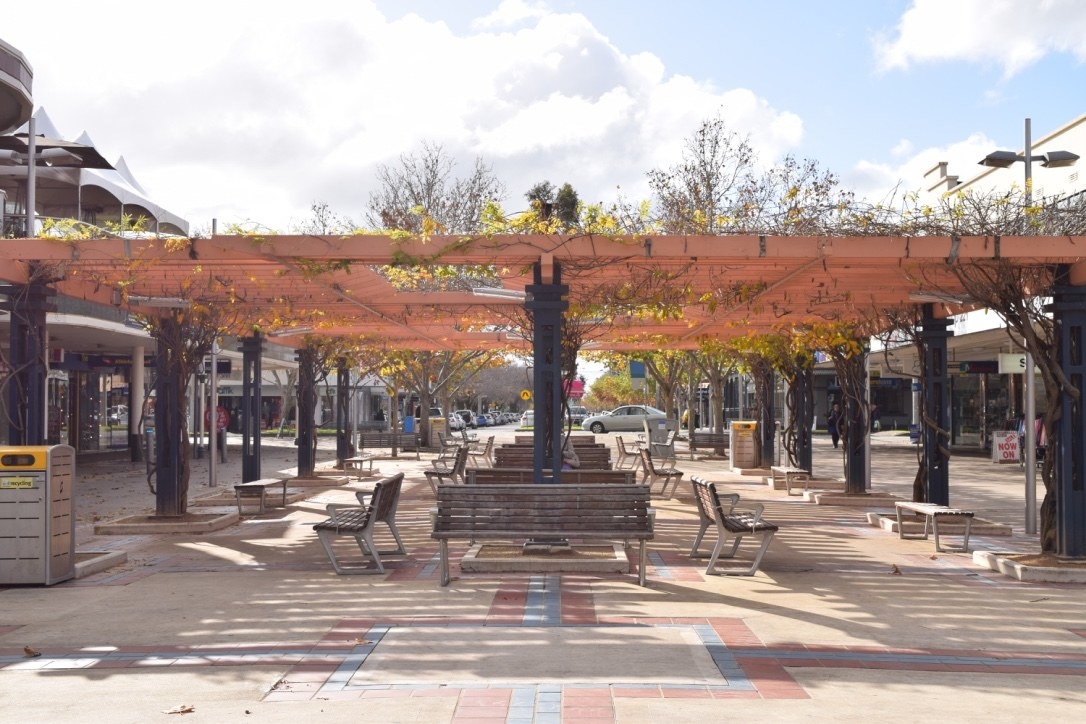
The second unusual thing about Shepparton’s young LGBT community is that it’s not dominated by gay and lesbian people. Specifically, there are lots of transgender guys.
“There’s something in the water,” jokes Zane Scott, 23. Zane is transgender, and exists on the cusp of the two LGBT groups in Shepparton: Diversity, for high-schoolers through to age 24, and Goulburn Valley Pride, for adults.
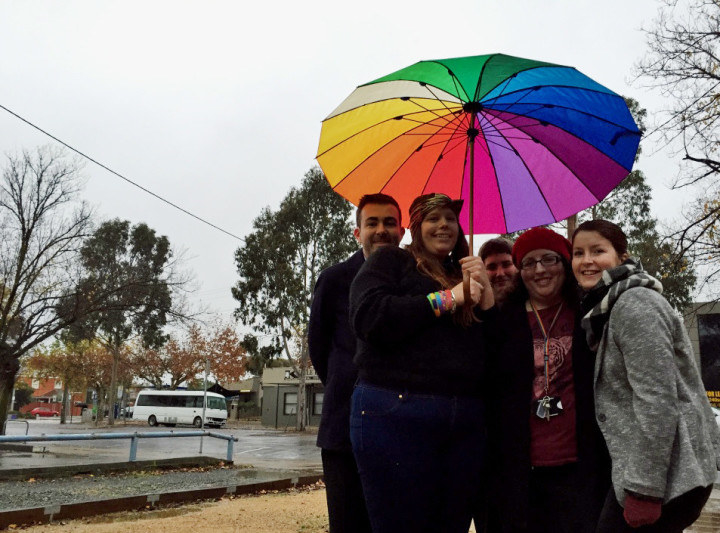
At a meeting of GV Pride, the group discusses how being transgender compares to being bisexual, lesbian, or gay in Shepparton. A number of transgender guys in their late teens and early 20s have come out over the past few years, and the group says it’s slowly becoming more accepted.
“Trans is still… it’s not a huge deal. But it’s still a big deal,” Zane says.
Oscar, who will finish Year 12 this year, says his school experience has been mostly good. Another guy came out as trans about a year earlier, and people knew the deal. But there have been some issues with toilets, and the bunks at school camp.
“They make me use the disabled toilets,” he says. “There’s only two disabled toilets at the school, and I feel weird going into that one. I’m not disabled. Other people need that one.”
Oscar won the school camp argument, and will bunk in with the other boys. But the toilets is an ongoing discussion. Still, Oscar is generous. “I’ve had it really easy compared to some kids,” he says.
Anakie Crocker, 19, is a trans man from neighbouring Mooroopna. His name is the result of a rather drastic spelling error, committed by his mother, on his birth registration form.
“It was meant to be A-N-A-R-C-H-Y,” he explains.
“As in, the political philosophy?”
“Yeah.”
“Do you like your name?”
“Um, I wish it was spelled correctly.”
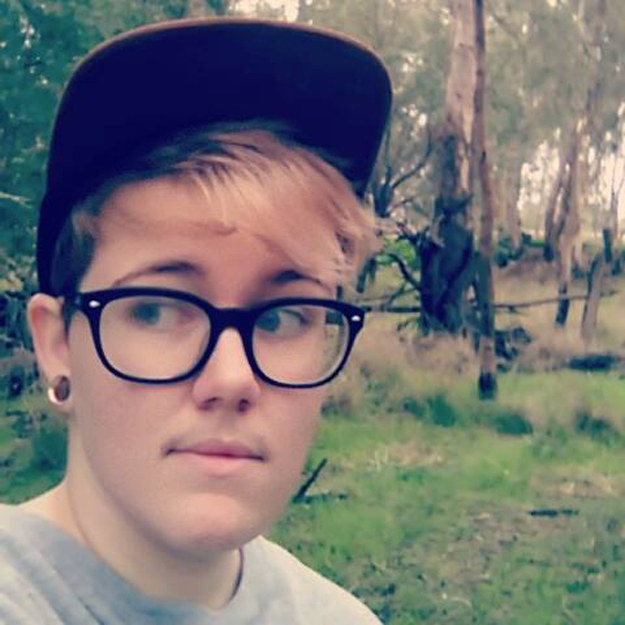
Anakie struggled at a public high school, and would have finished Year 12 this year had he not dropped out. It was a combination of fielding awkward questions from peers, teachers not understanding his situation, and medical issues that led to him feeling like he couldn’t finish.
“Most of it was really dumb questions that you’ve got to get out of the way. When are you having the surgery? Is it gay if I have sex with you? Can you get a girl pregnant?” He laughs. “Stuff like that.”
But life is looking up for Anakie since he left school and moved out of home. The average week, he says, is his phone buzzing every five minutes – the small but highly active Diversity group making plans.
“Do you want to come to [local pub] The Deck? Do you want to go see a movie? Go for coffee?” he says. “We’re always doing the same things, but it’s fun.”
All in all, Anakie says, being a trans guy in Shepparton is “not as difficult as people think it is”.
“I’ve heard a lot of people have these terrible assumptions. ‘Oh, poor you, you’re from a rural town, you must get chased out of town’. No. It’s quite supportive.”
The trans men of Shepparton might feel supported, but access to medical treatment is a problem acceptance can't fix. The two biggest barriers are travel and money.
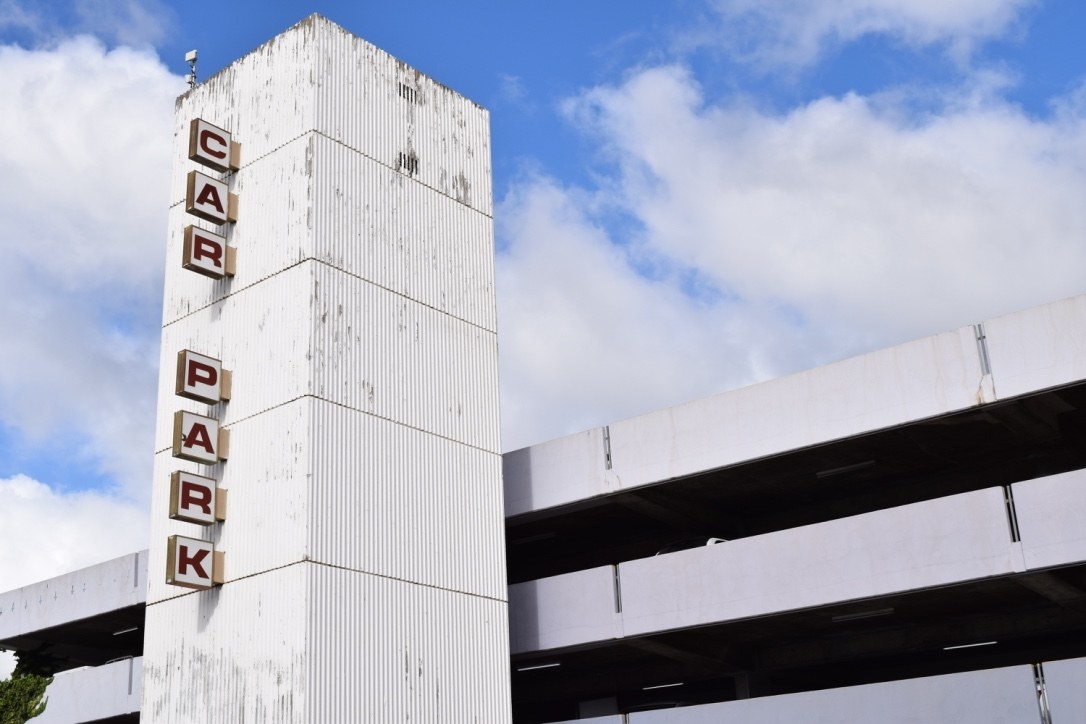
There’s no gender therapist in Shepparton, which is normal for a country town. But it's difficult for a young person from the country to transition, and the multiple appointments and confirmations and clarifications required add up. Oscar’s supportive mother has to take days off work to get him to Melbourne for the treatment he needs.
“[The therapist] does Skype appointments, but the Skype never works, so you know.” Oscar smiles and shrugs.
“And then all the endocrinologists are in Melbourne, so everywhere you go, you have to travel. The surgeon is in Melbourne. The appointments are expensive, you pay for testosterone. It [adds] up.”
Anakie, who simply says "I don't have a car, or money," has been saving to take the train down to Melbourne to get an appointment with a GP to get an appointment with a gender therapist to get an appointment with an endocrinologist. He sums up his situation with three syllables and a forced smile: “Still pre-T.”
Anakie has also found it hard to access mental health services who are trained in transgender issues.
“I’ve sought out counselling locally, and I’ve spoken to other trans friends about seeking help. They all said ‘Go to Melbourne’. It’s not worth looking in Shepp, they are completely oblivious to trans topics.”
In this context, of not being able to get the treatment he needs, Anakie is scathing of the attacks on the Safe Schools Coalition. He says the much-discussed Minus18 article about chest-binding – often misrepresented as part of the official school program – actually saved him from medical complications.
“If it wasn’t for that article, I would still be using a waist compression band on my chest, which can cause a lot of trouble,” he says. “It’s a lot thicker than what a binder should be, and it compresses more and more.”
The city lights of Melbourne are appealing for a lot of teenagers in Shepparton. Recently, Diversity travelled down for the annual Minus18 formal, where Oscar wore his first suit. In the photo he texts to me – captioned "Found one where I look decent, haha" – he’s posing proudly on a bench in the main street, looking dapper as can be.
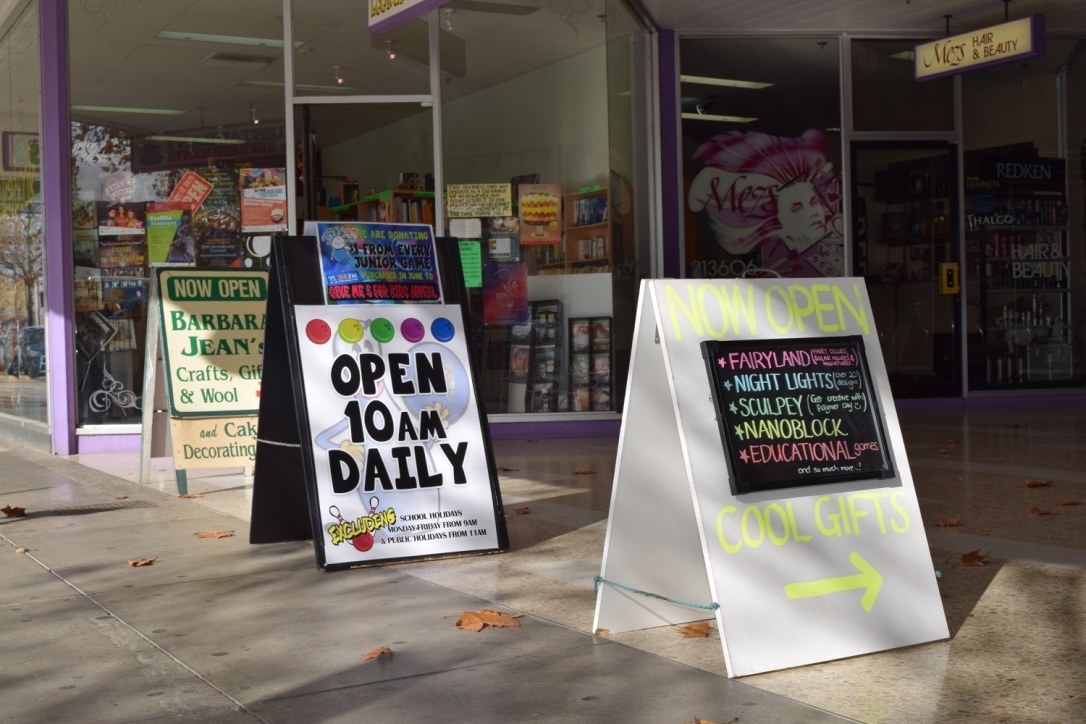
But while Oscar, Anakie, and other Shepparton trans guys acknowledge the benefits of Melbourne for medical access, and sheer quantity of events, they’re not at all dismissive of the little community they’ve created in Shepparton. In fact, Oscar thinks he has the better end of the deal.
“I think it would be harder in Melbourne,” he says. “It’s so much bigger. No one really talks to each other, it seems really distant. You walk down the street, it’s crowded. Here, you walk down the street and see 10 people you know on your way.”
Unlike many LGBT people who grow up in the country, Oscar sees a future in his hometown. He wants to move to Melbourne to study – biology, of course. And after that?
“I’ll come back to Shepparton.”
